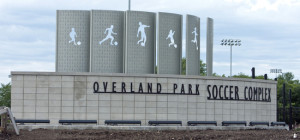 OVERLAND PARK, Kansas — A city in Kansas has payed $50,000 in attorney’s fees after a court ruled that it had violated the First Amendment rights of Christians who sought to distribute materials about their soccer camp outside of a city-owned soccer complex.
OVERLAND PARK, Kansas — A city in Kansas has payed $50,000 in attorney’s fees after a court ruled that it had violated the First Amendment rights of Christians who sought to distribute materials about their soccer camp outside of a city-owned soccer complex.
In April 2012, Gordon Hunjak of Victory Through Jesus Sports Ministries Foundation sought to distribute flyers about his ministry’s soccer camp inside the fencing of the Overland Park Soccer Complex. When he—along with his wife and sons—were directed to stop, they moved outside the fence and began distributing the information on the walkway near the gate. Hunjak was again asked to cease his activities.
Hunjak then met with city officials, who outlined where literature distribution was not permitted, including on the sidewalks surrounding the facility. When the ministry attempted to pass out literature a third time, police threatened arrest. At the time of the incident, the city’s ban was an unwritten regulation, but was soon codified, declaring the area to be a non-public forum.
Hunjak, who has distributed literature at other soccer fields owned by the city without issue, then contacted the Christian legal organization Alliance Defending Freedom (ADF) for assistance. The group soon filed a legal challenge against the city, seeking an injunction against its ban on engaging in free speech activities on the sidewalks surrounding the complex.
The city argued in return that the regulation was necessary to prevent littering and to ensure proper pedestrian traffic flow.
In May of this year, the United States District Court in Kansas issued a permanent injunction against the regulation, ruling in favor of Hunjak and Victory Through Jesus Sports Ministries Foundation.
“There is no reason to view these sidewalks as any different from any other city sidewalks,” Judge Kenneth G. Gale wrote in his 21-page decision. “The sidewalk outside the fenced areas is a traditional public forum. The public sidewalk owned and operated by the City is, in this case, exactly what is appears to be to any person using it—a public, city sidewalk.”
But, “[t]he City has expressed its clear intent that most of the complex area (even the open city street running through it and the ball parks it has permanently leased to a third party) not be used for ‘First Amendment expressive activities…'”
Gale noted that the same areas barred from free speech were open to other activities.
“A 10-foot wide walkway leads from the parking areas to the gates. All of these walkways outside the gates are open for general public use when the complex is open, and there are no restrictions on using these to, for example, walk a dog or jog for exercise,” he outlined. “[But] the distribution of literature is prohibited even if it does not slow down traffic or cause a trash problem.”
Gale, in concluding that the regulation was unconstitutional, found the restriction to be overly burdensome to the First Amendment rights of citizens.
“If the concern of the City is, as stipulated, litter and ensuring the efficient flow of pedestrian traffic, the broad ban imposed by the Resolution is an excessive response to those concerns,” he ruled. “Because the sidewalks are a public forum, and Defendant cannot establish that the ban serves a significant government interest and is narrowly drawn to protect that interest, the Resolution prohibiting free speech on the sidewalks outside the fenced area violates the First and Fourteenth Amendments guarantee of free speech.”
The following month, Gale ordered the City of Overland Park to pay $50,000 in attorney’s fees for costs associated with the litigation. Hunjak sought no personal financial retribution. According to ADF, the city issued the payment to its law offices last week.
“Public officials should respect freedom of speech, not seek to suppress it,” said ADF Senior Legal Counsel Erik Stanley. “As the court rightly recognized, public sidewalks are one of the clearest examples of areas where the First Amendment protects free speech.”
“We hope other cities will take note of this ruling and understand the importance of respecting the Constitution’s free speech protections,” added ADF Senior Counsel Kevin Theriot.
Become a Christian News Network Supporter...


